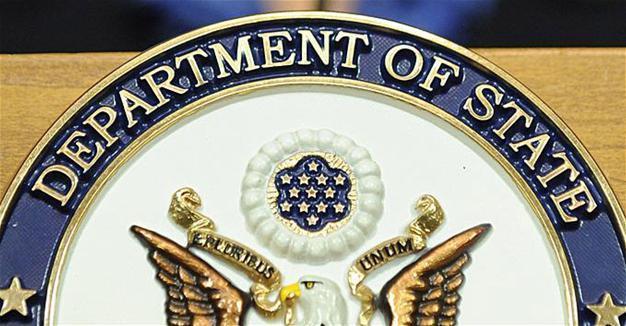Gülen movement set up ‘resembles organized crime network,’ says US official
WASHINGTON – Associated Press
 A senior U.S. State Department official on Oct. 31 said the movement of Pennsylvania-based Islamic preacher Fethullah Gülen has a set up that resembles an organized criminal network, which makes it not a “benign religious movement.”
A senior U.S. State Department official on Oct. 31 said the movement of Pennsylvania-based Islamic preacher Fethullah Gülen has a set up that resembles an organized criminal network, which makes it not a “benign religious movement.”The official, who spoke on condition of anonymity as he was not authorized to discuss the matter publicly, said charity and education organizations run by Gülen’s sympathizers have a suspicious structure and financing and look “a lot like the ways in which organized crime sets itself up by folks who are trying to hide money for money laundering,” rather than a “benign religious movement.”
He also said Turkey’s contention that Gülen and his followers were involved in the failed coup attempt “may have some merit,” even as the Obama administration says Turkey has provided little evidence to support their claim.
Ankara accuses Gülen of orchestrating the attempted military coup in July and is asking the U.S. to extradite him. Gülen denies any involvement and has condemned the attempted coup and the U.S. is reviewing Turkey’s request.
The official told reporters there are “reasonable grounds” to take the Turkish government’s accusations against Gülen seriously.
The briefing comes several days after Turkey’s justice minister met with U.S. Attorney General Loretta Lynch to press the extradition request. Justice Minister Bekir Bozdağ compared Gülen to Osama Bin Laden and warned that Washington’s failure to hand Gülen over could seriously hurt bilateral ties. Washington views Turkey, a NATO member, as an important ally in the region in fighting terrorism.
The State Department official said the United States government is examining Turkey’s evidence against Gülen, but added that the evidence so far concerns alleged crimes committed by Gülen prior to the coup.
Bozdağ said last week that some of the coup plotters have confessed to taking orders from Gülen. He also said that Gülen was receiving secret recordings of conversations of a top Turkish official provided to the cleric by one of his followers.
Gülen’s lawyers insist that Turkey’s case against their client does not satisfy the U.S. requirements for extradition and that all confessions made by his followers in Turkey were obtained under duress.
Since the failed coup, the Turkish authorities have arrested close to 37,000 people and more than 100,000 people have been dismissed or suspended from government jobs, causing an outcry from international human rights organizations.
Turkish Deputy Prime Minister Mehmet Şimşek, meanwhile, said on Oct. 31 that there has been around half a million evidence, information and testimonies showing Gülen’s role in the failed coup attempt, in dossiers submitted to U.S. authorities for his extradition.
Şimşek said “there was no question for us regarding this issue.”
















